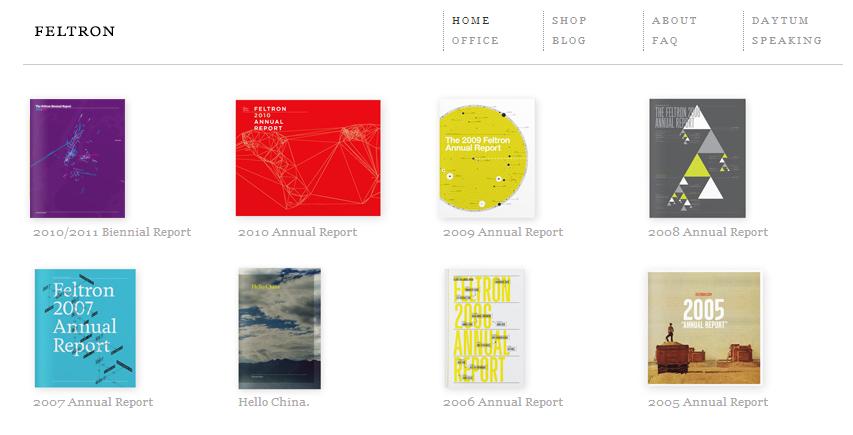Nicholas Felton began recording data from his everyday life. From his interactions online, between individuals, how much of a particular food he ate and the list goes on. What is remarkable about Felton’s reports, or the Feltron reports, is just how much data is visible in each of these data books.
In his 2009 Annual Report, Felton asked individuals to asses his interactions with them. When studying the data, it was increasingly difficult to navigate and understand. At times the font was small and I didn’t even know what each factor he was analyzing meant. There was no legend, nor was there a key to let individuals know exactly what they were looking at.
However, looking over these Feltron reports. Some questions began to crop up. With each encounter that Felton had with someone he asked them to evaluate their interaction with him. Couldn’t this have skewed his data? When people feel as though they are being observed they act differently. Similar to how someone acts differently when they know they are being videotaped, people don’t act themselves when they are being monitored.
Second, how valuable is all of the Feltron data? Yes each interaction he has with an individual is important, but often times individuals put meaning behind statistics that are just that: statistics and nothing else. It is inherent for individuals to try and find meaning behind everything. Simply by cataloging his data, are observers simply giving meaning behind the numbers that isn’t there? Are the data collected in the Feltron reports actually meaningful? I’m not sure I have an answer to that. Perhaps in the future we can find some meaning for this. As of now, I think trying to find meaning behind every action in a numeric fashion isn’t worthwhile.
Third, each individual that had an interaction with Felton recorded their encounter. When people are self-reporting they are more likely to hold back information to make themselves appear in the best light. Perhaps all of the data collected wasn’t accurate. Knowing that Felton was going to be viewing this data, individuals may have held back information in order to not hurt his feelings or make themselves appear as more sophisticated individuals. This most likely had some influence on the data collected.
Overall, I think the notion of collected data for every point in your life is very interesting to observe. Often times individuals go about their day not realizing how many cups of coffee they actually drink or how much food they consume. Recording data in this manner can really highlight important factors in someone’s everyday life. However, in other cases there are many factors that could have skewed the data. Either way, I think an analysis of the Feltron data was an interesting exercise.

